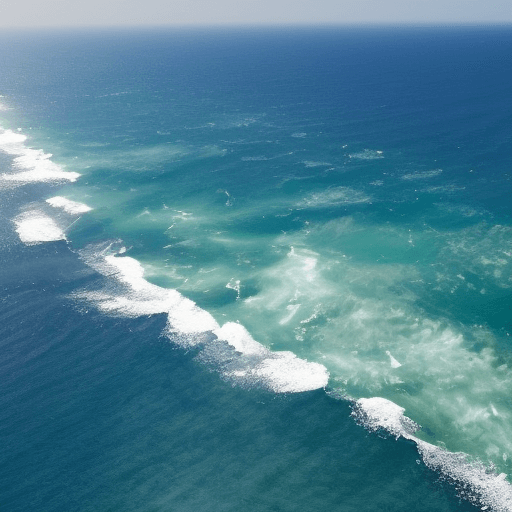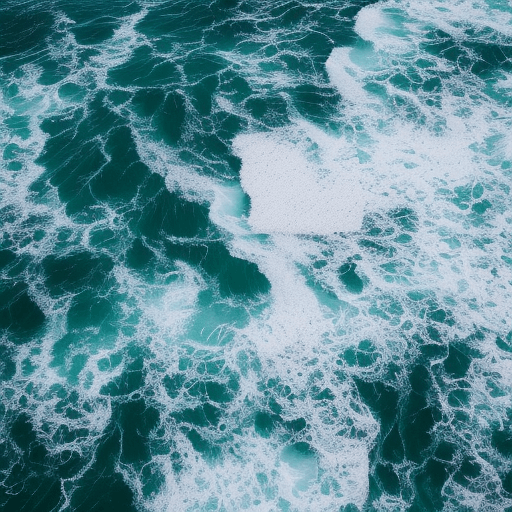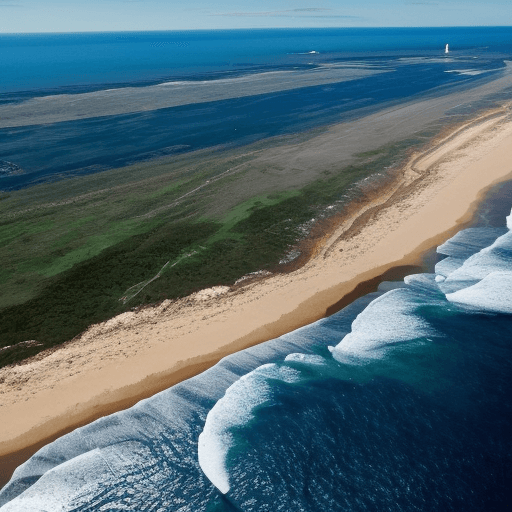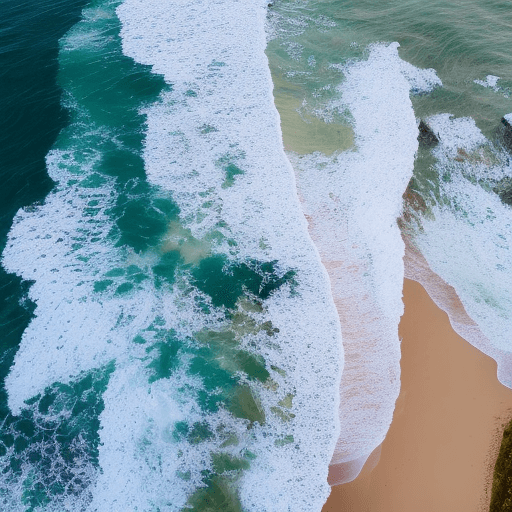Sea vs ocean
Two words that are often used interchangeably, but have very different meanings.
Sea refers to a large area of salt water that is part of a larger body of water, such as an ocean.
Ocean, on the other hand, specifically refers to the largest division of the sea, which is usually defined by its depth and size.
So what’s the difference?
And which one should you use?
Let’s explore the differences between sea and ocean and when it is appropriate to use each term.

The terms “sea” and “ocean” are often used interchangeably, but there is a difference.
The ocean is the largest body of water on Earth, stretching from the Arctic Ocean in the north to the Antarctic Ocean in the south while seas are smaller bodies of water that are part of and connect to, the ocean.
There are many seas around the world, including the Mediterranean Sea, the Caribbean Sea, and the South China Sea.
How is the sea different from the ocean?
The terms “sea” and “ocean” are often used interchangeably, but there is actually a difference between the two.
The ocean is the largest body of water on Earth, covering more than 70% of the planet’s surface.
In contrast, a sea is a smaller body of water that is partially enclosed by land.
For example, the Mediterranean Sea is located between Europe, Africa, and Asia.
Because seas are connected to the ocean, they share many of their characteristics, such as a similar salt content and a similar range of temperatures.
However, seas tend to have calmer waters than the open ocean, and they are often shallower.
Additionally, because they are partially surrounded by land, seas usually have a higher concentration of nutrients than the ocean. These nutrients support a rich variety of marine life, making seas popular destinations for fishing and tourism.
When should you use sea and when should you use ocean

There is often confusion about when to use the terms sea and ocean.
In general, seas are smaller bodies of salt water that are surrounded by land, while oceans are large bodies of salt water that cover most of the earth’s surface.
However, there are some exceptions to this rule.
- For example, the Mediterranean Sea is technically an ocean, because it is connected to the Atlantic Ocean through the Strait of Gibraltar.
- Similarly, the Caspian Sea is actually a lake, because it is landlocked.
So, when deciding whether to use the sea or ocean, it is important to consider the scale of the body of water in question.
If it is relatively small and contained, it is probably a sea. If it is large and covers a significant portion of the earth’s surface, it is most likely an ocean.
Which one is bigger- sea vs ocean
The ocean is big, really big.
In fact, it’s so big that it’s hard to wrap our minds around just how vast it is.
But just how big is the ocean?
Let’s compare it to some other things to get a better sense of perspective.

The ocean is approximately 71% of the Earth’s surface, making it almost three times bigger than the land.
That means that for every square mile of land, there are approximately three square miles of ocean.
If that doesn’t seem like much, consider this: the average depth of the ocean is about 2.3 miles.
That means that for every one square mile of land, there are approximately six and a half cubic miles of ocean.
In terms of sheer size, there’s no doubt that the ocean is bigger than the sea.
Is the beach a sea or an ocean?

A beach is a place where the land meets the sea or ocean.
It is usually covered in sand or rocks, and it is a popular spot for people to swim, sunbathe, and surf.
The term “beach” can also refer to the wetter area near the water’s edge, which is often called the “shoreline.” In this case, because the sea and the ocean have shorelines, this means that “the beach” can be part of both an ocean and a sea.
How are sea and ocean-related
The sea and the ocean are both large bodies of water.
They are both salty and have waves.
- The main difference between the two is that the ocean is much bigger than the sea. The ocean contains about 97% of all the Earth’s water, while the sea only contains about 3%.
- The ocean also has a much greater depth than the sea.
- It averages about 3.7 miles deep, while the average depth of the sea is only about 0.6 miles. The ocean is also home to a much wider variety of plants and animals than the sea.
- There are over 230,000 known species of animals in the ocean, compared to only about 3,700 in the sea.
The ocean is a vital part of our planet, and it is important to understand the differences between it and the sea.
Which one do you prefer – sea or ocean?
It’s a tough question – do you prefer the sea or the ocean?
On one hand, the sea is typically smaller and more contained, making it feel more intimate and cozy.
On the other hand, the ocean is vast and open, with a feeling of limitless possibility.
For some, the comforts of the sea are preferable. They enjoy being able to see the shoreline at all times and being able to explore every nook and cranny of the coastline.
Others find the openness of the ocean freeing and exhilarating.
They love being able to swim out as far as they can see and gazing up at an endless expanse of sky.
No matter which one you prefer, there’s no denying that both the sea and the ocean have their own unique charms.
Therefore, the sea and ocean are both large bodies of water with many similarities.
The main difference between the two is that the ocean is much bigger than the sea.
Article Sources
Jacks of Science sources the most authoritative, trustworthy, and highly recognized institutions for our article research. Learn more about our Editorial Teams process and diligence in verifying the accuracy of every article we publish.
